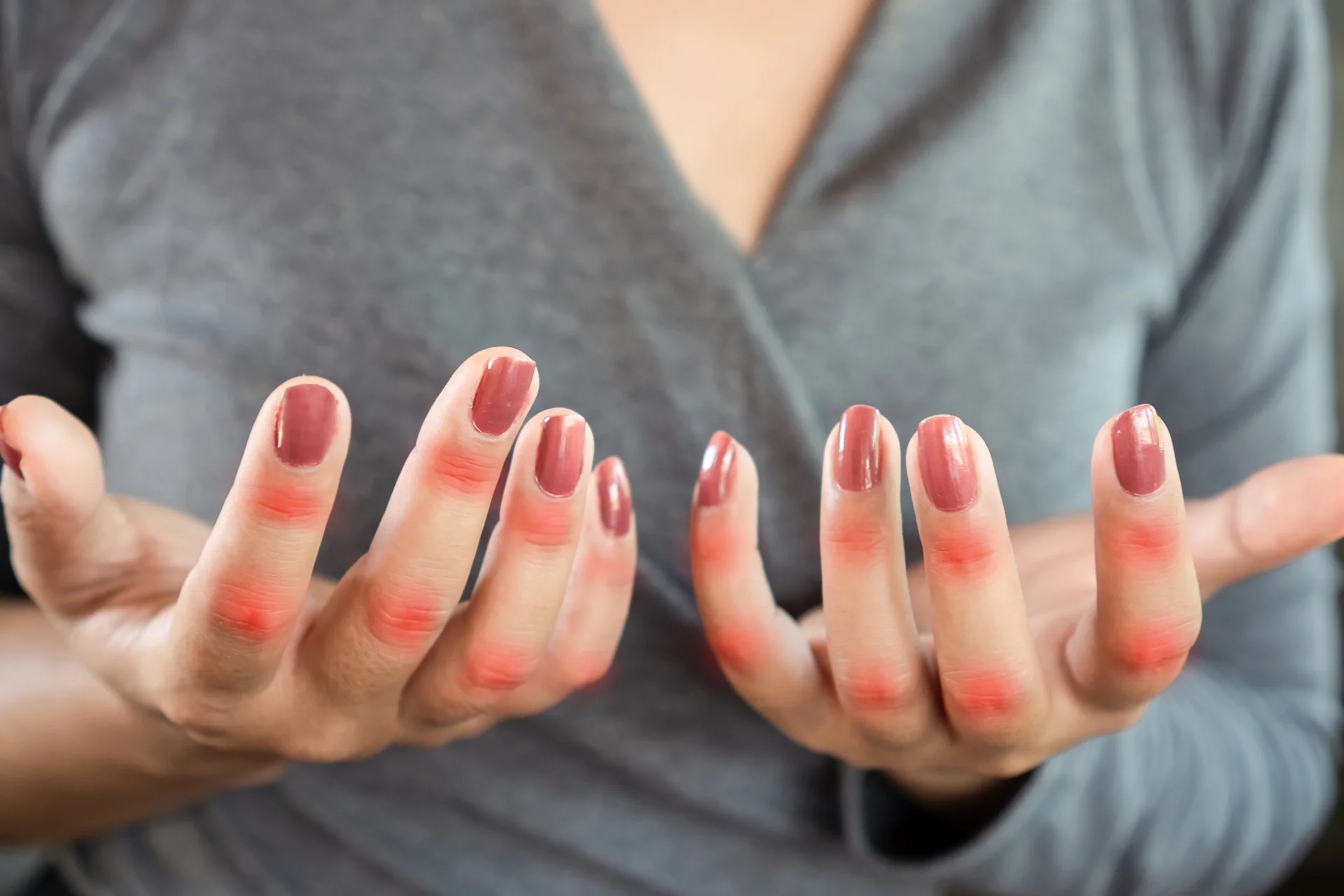What are Possible Metacarpophalangeal Joint Pain Treatments?

Metacarpophalangeal joint pain is a type of arthritis that affects specific bones in the hand and can severely affect motor function. It is usually due to excessive wear and tears, infection, trauma, or as a result of an autoimmune response. This condition is also known as MCP joint pain or MP joint pain.
So what are the possible treatment options available for this debilitating joint pain?”. After getting an extensive diagnosis, treatment for MCP joint pain varies based on the type and progression of arthritis. Most treatment options usually incorporate a combination of medications, surgical procedures (if necessary), and physiotherapy.
Regenerative therapy has helped countless patients look and feel like the person they were years before. Call us today to book your regenerative therapy consultation.
About MCP Joint Pain
MCP joint pain or metacarpophalangeal joint pain is a form of arthritis that affects the bones in the hands called metacarpals and the bones in the fingers called phalanges. The pain is particularly pronounced around the knuckle joints. At the MCP joint, the fingers can move in multiple directions — bending, spreading apart, straightening, and moving together.
The most common arthritic condition affecting the MP joints is rheumatoid arthritis. In this situation, the joint lining (synovium) produces chemical factors that inflame and destroy the cartilage and soft tissue, such as ligaments and tendons.
The end result is that the joint surfaces are destroyed, and the fingers drift into a characteristic ulnar-deviated position, in which they point towards the little finger. As a result, MCP joint pain affects the ability to perform simple motor actions such as gripping and pinching, as they can become excruciatingly painful.
Causes of Metacarpophalangeal (MCP) Joint Pain
Apart from rheumatoid arthritis, there are several other less common forms of arthritis and environmental conditions that can cause metacarpophalangeal joint pain. These include the likes of natural deformities, injury-related pain, and loss of motion due to inactivity. The MCP joint cartilage gets worn out and gradually causes inflammation in ligaments, tissues, and tendons. Here are some other potential causes of MCP joint pain:
- Arthritis and non-arthritis-related inflammation
- Trauma caused by injuries that may have led to weakened or broken cartilage
- Osteoarthritis that causes extensive wear and tear of the MCP joint
- Infections caused due to cuts, bruises, animal bites, or surgery
- Uncommon medical conditions such as gout, psoriasis, etc.
- Loss of operational functioning and mobility due to old age
- A condition known as pseudogout that’s brought upon due to the deposition of calcium phosphate crystals around the joint
Signs and Symptoms of The Onset of MCP Joint Arthritis
There are several signs and symptoms that can be used to diagnose metacarpophalangeal joint pain. These generally involve a combination of pain, swelling, inflammation, and loss of motion. Symptoms tend to gradually worsen the longer the arthritis is left untreated. Patients will experience pain that intensifies when attempting to do day-to-day activities such as gripping, writing, pinching, eating, and the like.
Along with limited motion, patients may also experience stiffness, weakness, and edema around the thumb and index fingers. A few fingers may also be deformed, which can cause them to shift sideways (known as ulnar drift) towards the little finger. The severity of symptoms is likely to be more pronounced when taking rest or sleeping at night.
Diagnosis for Metacarpophalangeal Joint Arthritis
Diagnosis is the first step in treating MCP joint pain. Your doctor will examine your hands and determine the joint’s stability, range of motion, and pain. Examining your medical history and symptoms will help them determine what sort of arthritis is causing the issue and what tests need to be done.
Other illnesses like tendonitis and nerve compression also need to be ruled out through diagnostics. Blood tests become necessary in some cases to rule out RA, gout, and pseudogout. The diagnosis will be verified by ordering X-rays. When OA is the root cause, x-rays will reveal a narrowing of the space between the bones, which indicates cartilage loss.
MCP Joint Pain Treatment Options
- Synovectomy: Patients with rheumatoid arthritis who are not yet experiencing severe joint surface damage may benefit from synovectomy, a procedure that involves removing the active, inflamed synovium from the joint to halt the degenerative process and preserve joint cartilage. In order to enhance function, the soft tissues (ligaments and tendons) can also be tightened and realigned as necessary.
- Joint Fusion: Patients suffering from MCP joint pain can also undergo a joint fusion procedure involving fusing the MP joint to restore thumb functions.
- Joint Replacement: In some instances, the loss of mobility in the hand due to MCP joint pain can be debilitating to the point where the replacement of the joint is preferable. Historically, satisfactory pain alleviation and function have been achieved through replacement with Silastic hinged implants. Patients who are older, more sedentary, and have little need for hand use have responded well to silicone implants.
Non-Surgical Treatment for MCP Joint Pain
- Activity Modification
- Anti-Inflammatory Medications
- Cortisone Injections
- Simple Splinting
- Flexible Strapping
- Topical Skin Creams
- Physiotherapy
World-Class Metacarpophalangeal Joint Pain Treatment Services at aNu Aesthetics
MCP joint pain is a medical condition that requires medical treatment as soon as possible to get on the road to recovery. Proper imaging paired with post-treatment pain care can help reverse the effects of arthritis. At aNu Aesthetics, we focus on providing pain relief through medication and surgical procedures.
Our skilled medical professionals ensure to give our clients the right treatment, from simple heat treatments and splints to steroid injections and arthroplasty surgeries. Hand therapy and activity modification programs may also be required for a full recovery. Get your life back and contact us today to book a free consultation.
Regenerative therapy has helped countless patients look and feel like the person they were years before. Call us today to book your regenerative therapy consultation.